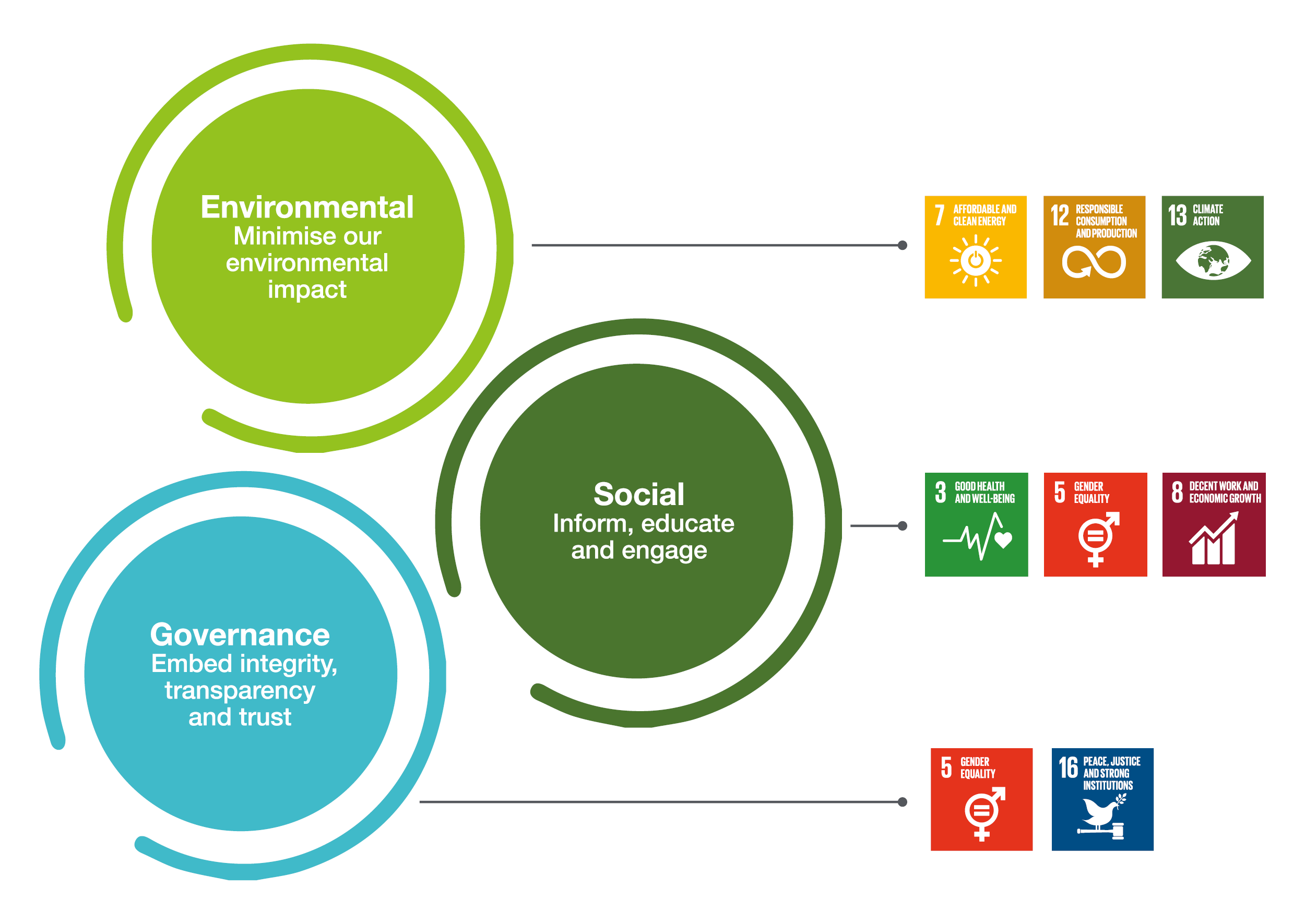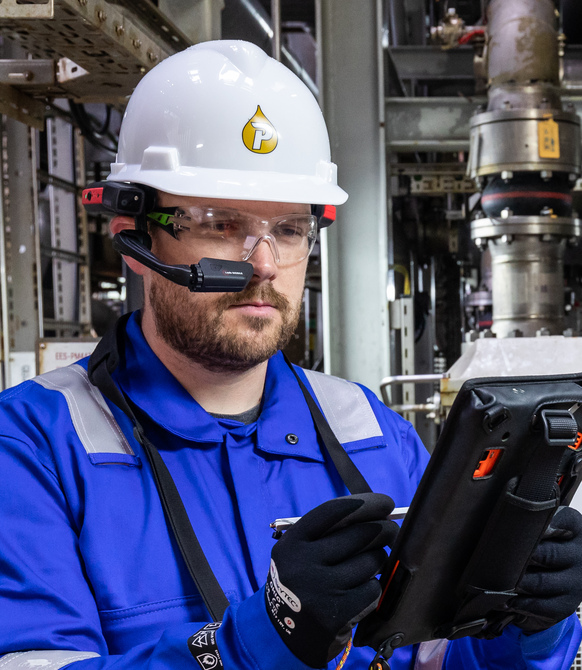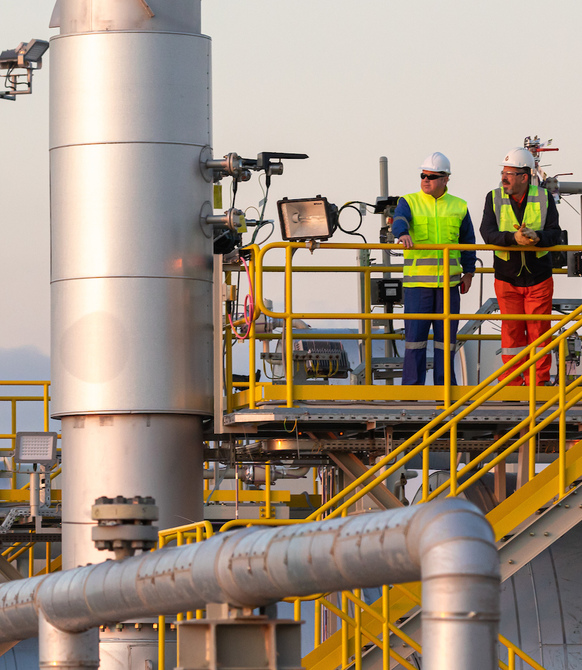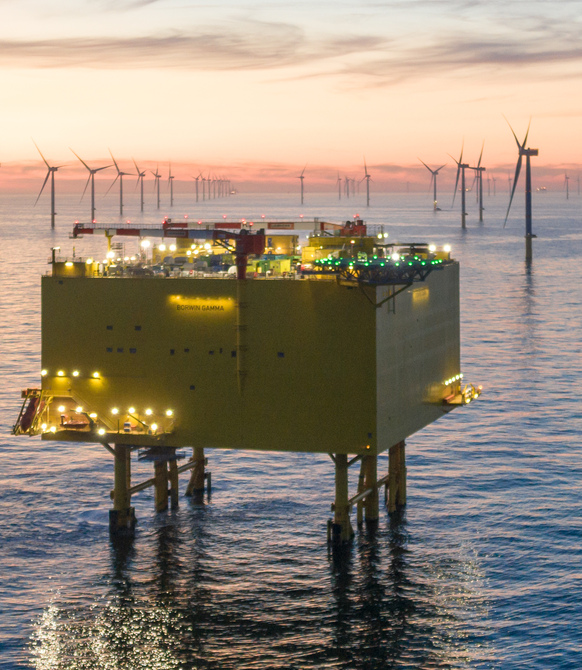Sustainability
Sustainability and ESG reporting
Our sustainability reporting provides a consolidated overview of the progress we are making on our non-financial performance. The metrics we report on are informed by our annual materiality review of the issues that are of most interest to our stakeholders including clients, investors, suppliers, NGOs, Government representatives, employees and industry associations.
Our reporting dashboard
Making progress on our sustainability strategy
| Our material issues | Our targets | Progress in 2022 | |
| Addressing climate risk and resilience | Net Zero by 2030 (scope 1 and 2 emissions) | Our Flare Reduction Taskforce delivered a step-change in emissions performance and successfully reduced our flaring intensity by 49%. |
|
| Circularity, waste and water management | Circular economy adopted by all sites | We have made good progress phasing out the majority of non-essential single-use plastics from all our offices and are progressing phase-out programmes at our project sites. | |
| Sector-leading health and safety | Zero harm | We saw a reduction in the number and frequency of work place injuries, as well as a decrease in the severity. We are also pleased to report there were no work place fatalities. | |
| Enhancing diversity and inclusion | 30% women in leadership roles by 2025 | We made modest increases in the proportion of women in senior management to 26%, and our female and LGBTQ+ employee network groups won the Equality, Diversity & Inclusion Initiative of the Year award at the Engineering Construction Industry Training & Development Awards. | |
| Respecting human rights | All third parties screened for human rights |
We continued to screen contracted third parties for human rights violations. The number of companies pre-screened, ahead of any prequalification request, within the E&C business unit, was 1,911 (increased from 1,475 in 2021). Unfortunately, we continue to uncover a small number of labour rights violations (such as late salary payments) at lower tiers of our supply chain. | |
| Optimising in-country value | Sector leading local delivery |
In-country value (ICV) action plans are now implemented in all our key geographies focusing on nationalisation, supply chain capacity building, local purchasing and investment. The proportion of local goods and services purchased decreased to 32%. The impact of supply chain disruptions on local capacity and availability, combined with the limited opportunities to procure certain high-tech equipment in some countries, all impacted our ability to purchase locally. | |
| Embedding ethical values and behaviours | No regulatory non-compliance | We continued to embed a compliance ethos across the Group, saw improvements in the quality of Speak Up reports, and have enhanced our processes and controls through the use of our new cloud-based due diligence platform, operated by Dow Jones. | |
| Enhancing transparency, governance, and disclosure | Move beyond compliance | We have continued to integrate the TCFD recommendations into our existing risk and governance processes, incorporating good practice recommendations from the Financial Reporting Council. Our governance practices were recognised by third parties and ranked as ‘leading those of peers’ by MSCI. | |
Aligning with the Sustainable Development Goals
Our sustainability strategy seeks to address the material issues identified from our stakeholder engagement, and the ESG programmes are aligned with the seven UN Sustainable Development Goals that we believe are most relevant to Petrofac’s business.
We are also a signatory of the UN Global Compact, and this report serves as our Communication on Progress on the implementation of its ten principles.
Our Annual Report report is also prepared in accordance with the Global Reporting Initiative, the Sustainability Accounting Standards Board, and the recommendations of the Task Force on Climate-related Financial Disclosures.

Links to the UN Sustainable Development Goals








